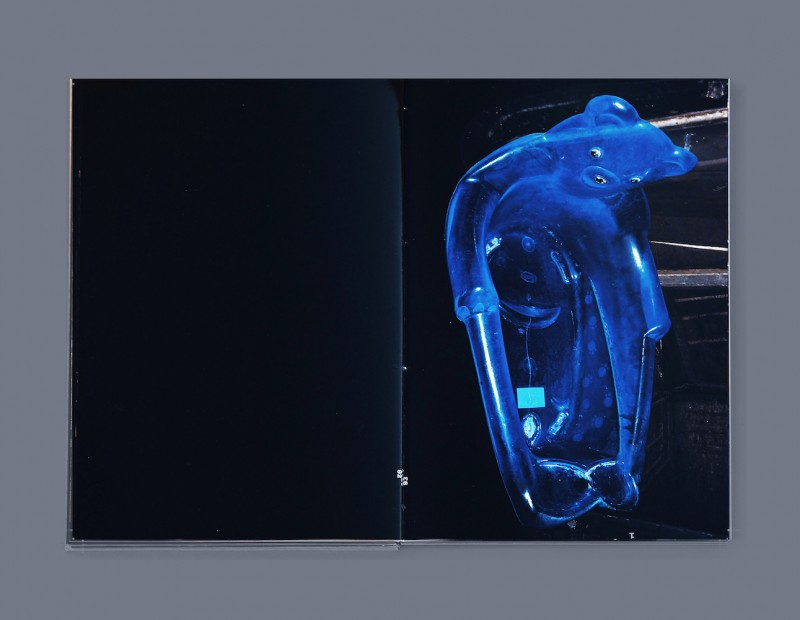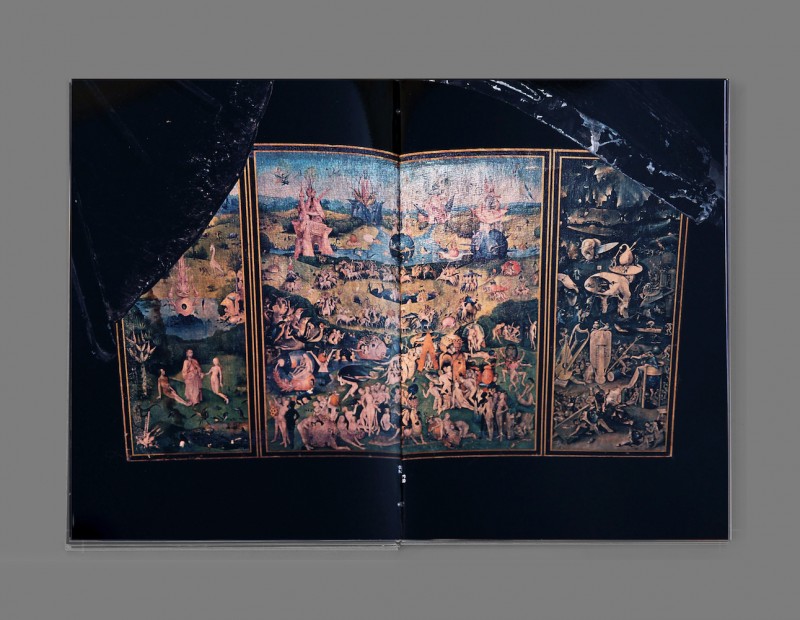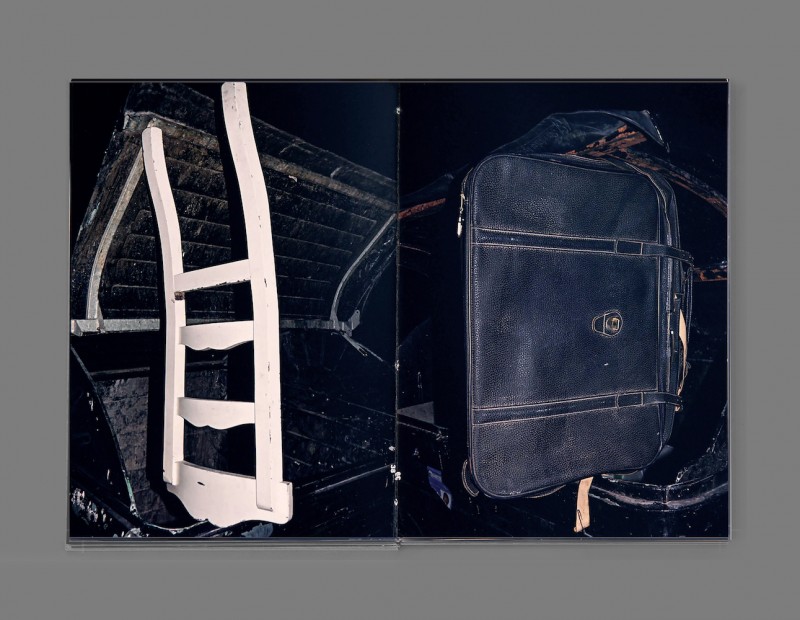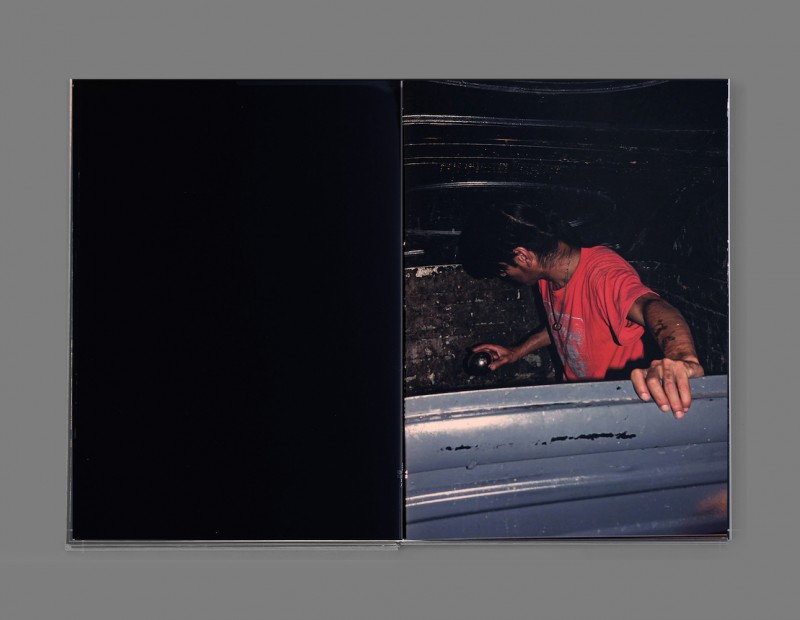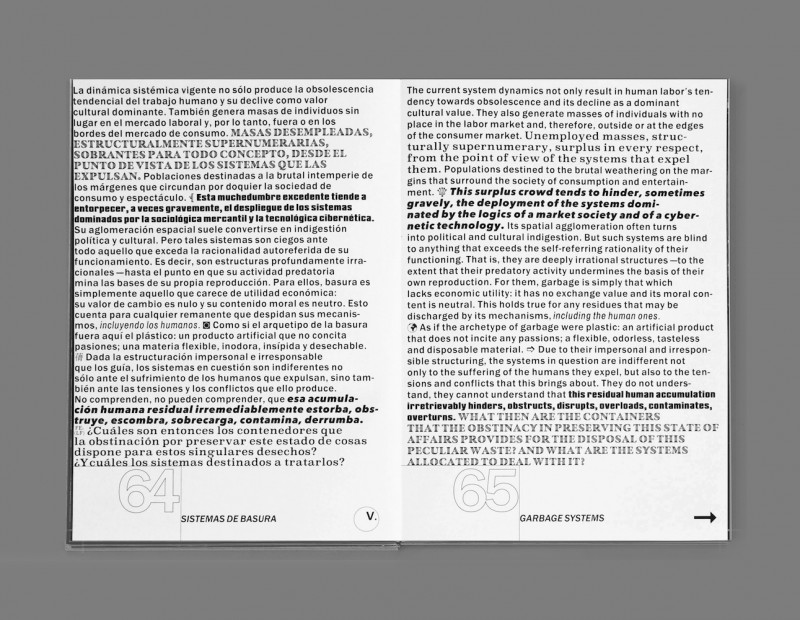Book of the Month – Sistemas de Basura / Garbage Systems
Book of the Month – Sistemas de Basura / Garbage Systems
Henrik Malmström
October 11, 2019
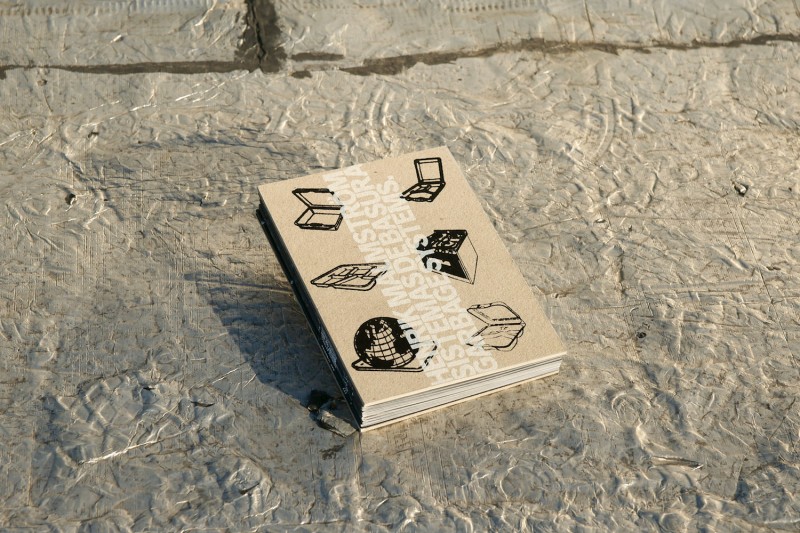
In his recent book, the Finnish photographer Henrik Malmström, who has been living in Buenos Aires for the past few years, focuses his attention upon the city’s garbage collectors. However, he does not portray them in the classic sense of the word and is even less interested in producing a documentary reportage. Instead, he has used a surprising format for his Garbage Systems: central to his photographic series are the large black rubbish bins and the objects the cartoneros use to prop open the lids, while searching the contents. It is not only pieces of wood or pipes that are used to keep the heavy lids open; but also sign posts, toilet lids, a suitcase, a computer keyboard, an umbrella, and very often pictures and frames. Significantly, among these pictures is a reproduction of Hieronymus Bosch's triptych, The Garden of Earthly Delights. This artistic work represents, in its three segments, the Garden of Eden, Paradise, and Hell. In this context, it seems a cynical commentary on the daily life of the garbage collectors.
Employing yet another creative perspective, the photographer also turns his eye to the crannied surfaces of the garbage bins: images captured on the book's shiny pages, and taken in the deepest dark of night, make these surfaces appear like artistically abstract decors. The series is complemented by a few additional motifs that give insight into the garbage collectors' actual work. The photographer followed their nightly progress very closely with his camera , and portrays the garbage recycling system using an original, but convincing, artistic form. The accompanying text by Sergio Tonkonoff, a scientist at the University of Buenos Aires, deals in depth with the city's garbage system. The text describes the producers, who throw away anything they consider useless or valueless, as well as the collectors, who focus on collecting, classifying and selling the garbage as reusable goods.
Taken between 2015 and 2018, Malmström's photographs present strong and metaphorical images, reflecting the circulation of consumable products in the city. It is also certainly worth mentioning the radically reduced design of the book. All of the landscape-format, double-sided motifs are stitched together down the middle, so that unusual half-images find themselves side by side. This means that it is only in the very middle of the eight-part book that one complete motif is found in its initial format. Though very different, the photo book's design is surprisingly effective.
(Ulrich Rüter)
Henrik Malmström: Sistemas de Basura / Garbage Systems
Recycled cardboard hard cover with silk screen printing
128 pages; 14.7 cm x 21.0 cm; Spanish / English; 280 copies
Published by: Editorial SED
Henrik Malmström+-
Henrik Malmström was born in Helsinki, Finland, in 1983, and currently lives and works in Buenos Aires, Argentina. His work is often the result of interaction with his immediate surroundings. In 2010 he self-published his first photo book, titled On Borrowed Time. He moved to Hamburg, Germany, in the same year, where he developed and completed the book trilogy: A Minor Wrongdoing, Life is One Live it Well and OK Cloth Shop, published by Kominek Books in 2015 and 2018, respectively. He is the co-founder and co-curator of the Müllkellergalerie, a premium art gallery located in a waste room in Hamburg. In 2015 he founded Vaciarte, a platform that attempts to generate, question and promote visual culture in the city of Buenos Aires. More

